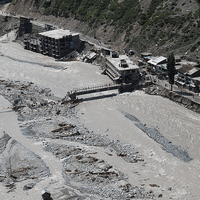Pakistan's worst flooding in almost a century may well be remembered as much for the magnitude of the disaster as for the fact that it constituted a major setback in the government's efforts -- backed by its Western and Muslim allies -- to defeat Islamist militants allied with al-Qaida and the Taliban.
There is a long list of natural and man-made disasters in Islamic countries in which militant Islamists have garnered popularity by quickly and effectively responding with relief and emergency aid, in stark contrast to governments that were slow to react and unable to provide services to victims. By launching immediate and effective aid operations, the militants bolster their contention that governments perceived as corrupt, authoritarian and heavily dependent on foreign aid cannot be trusted to serve the people. Past disasters in Pakistan itself as well as in countries like Egypt, Lebanon, Indonesia and Bangladesh demonstrate that such crises provide an opportunity for militants to build political capital.
This history is repeating itself with the Pakistani floods. In areas where the Pakistani government is competing with militants for control, militant Islamist charities, some associated with groups designated by the United Nations or the United States as terrorist organizations, provided aid to thousands displaced and made homeless by the floods days before government and foreign aid started to arrive. Meanwhile, rather than staying at home to coordinate relief efforts, already unpopular President Asif Ali Zardari visited France and Britain during the floods.

